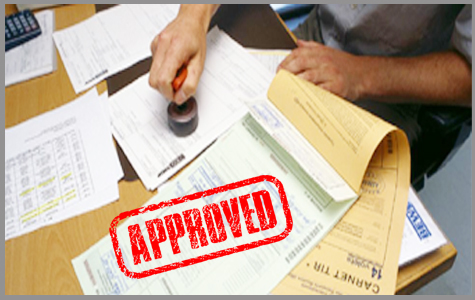How to Import eBikes and Electric Bikes into the UK: A Comprehensive Guide
Clear Fr8 Limited are able to assist with all Ebike imports to the UK.
The eBike industry is booming globally, and the UK is no exception. With increasing awareness about environmental issues and the growing popularity of sustainable transportation, eBikes have become a hot commodity. This article provides a comprehensive guide on how to import eBikes and electric bikes into the UK, covering all aspects from legal requirements to market strategies.
To import eBikes into the UK, you must understand the legal framework, including regulations and recent changes post-Brexit. You also need to select the right eBikes for import, considering quality, price, and consumer demand. Partnering with reliable manufacturers and negotiating favorable terms are crucial.
How to Import Ebikes and Ebike parts
Importing E-Bikes into the UK: A Comprehensive Guide
The United Kingdom, with its increasing focus on sustainable transportation, has seen a significant rise in the popularity of electric bicycles (e-bikes). Importing e-bikes into the UK, however, involves navigating a series of regulations and standards. This article aims to provide a detailed overview of the process, legal requirements, and best practices for businesses and individuals looking to import e-bikes into the UK.
1. Understanding UK E-Bike Regulations
Before importing e-bikes, it's crucial to understand the UK's specific regulations regarding e-bikes:
-
Definition of E-Bikes: In the UK, e-bikes are classified as Electrically Assisted Pedal Cycles (EAPCs). They must have pedals that can be used to propel the bike, an electric motor with a maximum power output of 250 watts, and should not be able to propel the bike when it’s travelling more than 15.5 mph.
-
Compliance with Standards: E-bikes must comply with the European standard EN 15194 and be CE marked to indicate conformity with health, safety, and environmental protection standards.
2. Import Duties and Taxes
-
VAT and Duties: Importers must be aware of the Value Added Tax (VAT) and potential customs duties applicable to e-bikes. The rate can vary, and it's advisable to consult the latest guidelines from HM Revenue and Customs (HMRC).
-
EORI Number: Businesses need an Economic Operators Registration and Identification (EORI) number to import goods into the UK.
3. Shipping and Logistics
-
Choosing a Shipping Method: Options include air freight, sea freight, and road transport. Each has its pros and cons in terms of cost, delivery time, and environmental impact.
-
Packaging and Safety: E-bikes contain lithium batteries, which are classified as dangerous goods. Proper packaging and labeling in accordance with international regulations are essential.
4. Post-Brexit Considerations
-
Changes in Regulations: Post-Brexit, the UK may diverge from EU standards. Importers should stay updated on any new trade agreements or regulatory changes.
-
UKCA Marking: The UKCA (UK Conformity Assessed) marking is a new UK product marking used for goods being placed on the market in Great Britain. It covers most goods which previously required the CE marking.
5. Environmental and Safety Standards
-
Eco-Friendly Practices: Importers should consider the environmental impact of their operations and strive for sustainable practices.
-
Safety Standards: Adherence to safety standards is not just legal compliance but also a matter of corporate responsibility.
Importing e-bikes into the UK is a promising venture but requires careful attention to regulatory compliance, safety standards, and logistical considerations. Staying informed and compliant with the latest regulations will ensure a smooth import process and contribute to the burgeoning e-bike market in the UK.
The logistics of eBike importation involve planning the shipping process, choosing a freight forwarder, and understanding customs and duty considerations. Safety and compliance standards are essential, including UK safety standards for eBikes and ensuring compliance with all relevant regulations.
Effective marketing strategies for imported eBikes include identifying your target market, using effective marketing techniques, leveraging e-commerce for eBike sales, building an online presence, and providing after-sales services and support.
Financial planning and budgeting, risk management, building a brand, understanding consumer trends, sustainability and eco-friendly practices, legal aspects, technology integration, customer feedback, insurance, and global market insights are all important considerations for eBike importation.
Navigating the Regulatory Landscape for eBike Importation into the UK
Importing eBikes into the UK requires a thorough understanding of the regulatory framework, including recent changes post-Brexit. This section delves into the legal requirements for eBike importation and provides guidance on complying with these regulations.
Recent Changes in Import Laws
Brexit has introduced significant changes to UK import laws, impacting the eBike importation process. This section outlines these changes and provides insights into how businesses can adapt to these new regulations.
Selecting eBikes for Import: Key Considerations
Not all eBikes are created equal. When selecting eBikes for import, it is crucial to consider factors such as quality, price, and consumer demand. This section outlines the key criteria for selecting eBikes that align with market demand and ensure profitability.
Popular eBike Models and Features
This section explores some of the most popular eBike models currently available, highlighting their features and the factors that contribute to their popularity among consumers.
Establishing Strong Partnerships with Manufacturers
Building strong relationships with eBike manufacturers is essential for a successful importation business. This section provides tips on establishing and maintaining these relationships, ensuring a steady supply of high-quality eBikes.
Negotiating Favorable Terms with Manufacturers
Negotiating favorable terms and conditions with manufacturers can significantly impact profitability. This section offers strategies for effective negotiation, enabling importers to secure the best possible terms for their business.
Planning the Shipping Process for Seamless eBike Importation
The shipping process is a critical component of eBike importation. This section guides readers through planning and executing the shipping process efficiently, ensuring timely delivery and minimizing potential disruptions.
Choosing a Reliable Freight Forwarder for Efficient eBike Importation
Selecting the right freight forwarder is crucial for a smooth and efficient importation process. This section provides tips for choosing a reliable freight forwarder, ensuring your eBikes are handled with care and delivered on time.
Understanding and Calculating Import Duties and Taxes
Accurately calculating import duties and taxes is essential for avoiding penalties and ensuring compliance with UK regulations. This section explains how to calculate these duties and taxes and provides resources for assistance.
Navigating Customs Procedures for eBike Importation
Dealing with customs can be challenging. This section offers advice on navigating customs smoothly, avoiding common pitfalls, and ensuring your eBikes are cleared for entry into the UK.
Adhering to UK Safety Standards for eBikes
Safety is paramount when it comes to eBikes. This section outlines the UK's safety standards for eBikes and provides guidance on ensuring your imported eBikes meet these standards.
Ensuring Compliance with All Relevant Regulations
Compliance with regulations extends beyond safety to encompass legal responsibilities. This section discusses how to ensure full compliance with all relevant regulations, minimizing legal risks and protecting your business.
DOCUMENT REQUIREMENTS
- Certificate of Origin
- Bill of Lading
- Packing List
- Commercial Invoice
- Customs Clearance

